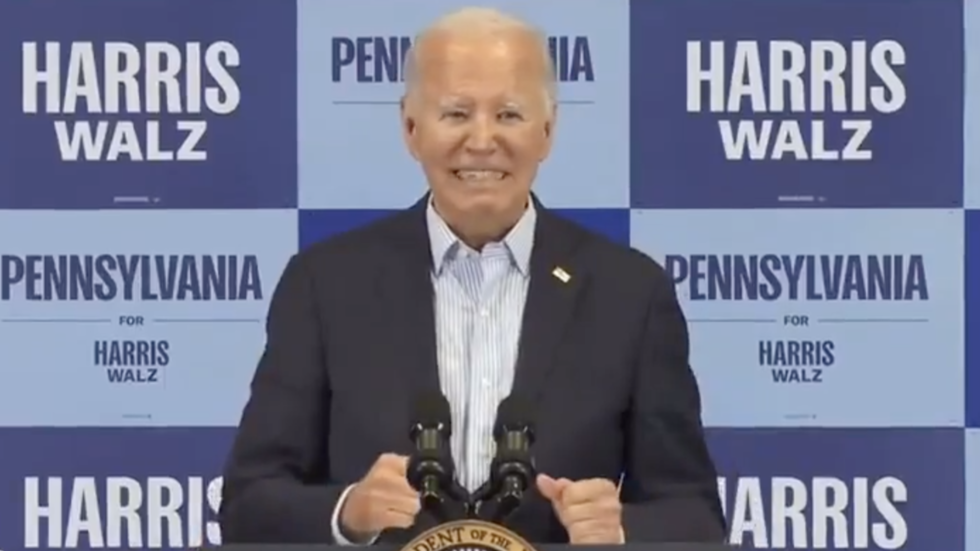In a recent rally in Scranton, Pennsylvania, President Joe Biden expressed his discontent with the Republican Party, particularly targeting the policies proposed by Donald Trump regarding tax cuts for high-income earners. Biden’s remarks were particularly pointed, as he characterized the advocacy for these tax reductions as the work of “macho guys,” suggesting that such views are not only misguided but also harmful to the working class. He made these comments while rallying support for Vice President Kamala Harris, the Democratic candidate in the upcoming elections. Biden’s assertive tone indicated his belief that Trump and his Republican allies are seeking to implement tax cuts that disproportionately benefit wealthier individuals at the expense of middle- and lower-income Americans.
Biden’s critique centered around Trump’s tax proposals, which include significant reductions in corporate tax rates and the elimination of taxes on overtime and tips for service workers. Trump has often pitched his economic strategy as beneficial for the average American, but Biden argued that these promises are veiled attempts to prioritize the rich. He highlighted the divide in priorities between the working class, who would find their interests better served by a more equitable tax system, and the wealthiest Americans who stand to benefit under Trump’s proposals. Biden’s impassioned comments in Scranton underscored his campaign’s broader message focusing on economic fairness and equity, positioning himself as a champion for the working class against the backdrop of Trump’s tax policies.
The heightened political rhetoric from both sides has led to an increasingly charged atmosphere in the lead-up to the election. Biden recently found himself in the middle of controversy after referring to Republican supporters as “garbage.” This comment, which he later clarified was a reaction to divisive rhetoric associated with Trump’s base, reflects the deepening polarization that continues to characterize American politics. Biden’s characterization of Trump’s supporters was seen as particularly combative, illustrating the ongoing battle for public opinion and the emotional stakes involved in the electoral process. The White House’s subsequent alteration of the transcript further highlights the sensitivity surrounding the language used in political discourse today.
Critically, the clash between Biden and Trump represents more than just a personal rivalry; it is indicative of broader ideological divides within the country. Trump has often dismissed Biden and Harris through personal attacks, labeling Biden’s policies as simplistic and calling Harris a “low IQ individual.” These exchanges illuminate a trend in American political campaigning where personal character and insults often overshadow substantive policy discussions. Biden’s references to “macho guys” supporting Trump may resonate with voters who are weary of aggressive posturing from politicians and who seek a more compassionate discussion about policy and its implications on everyday Americans.
In addition to policy differences, the electoral narrative is shaped by how each leader communicates their vision for America. Biden’s comments reflect a desire to foster solidarity among working-class citizens who feel marginalized by current economic policies. By framing Trump’s tax cuts as a betrayal of hardworking Americans, Biden aims to galvanize his base and attract undecided voters who value equity in economic policy. He seeks to portray himself not just as a candidate but as a voice for those who endure the direct consequences of economic disparity, a claim that Trump’s administration has faced criticism for neglecting.
Ultimately, as the election draws nearer, the sharp contrasts between Biden’s and Trump’s visions for America’s future would become even more pronounced. With Biden focusing on the narrative of economic equality and Trump pushing for tax cuts that favor the wealthy, voters must grapple with which vision aligns more closely with their values and needs. The ongoing exchanges between both camps serve as a reminder of the stakes in the upcoming election, where the decisions made could significantly impact the fabric of American society and its role in promoting economic justice. Biden’s emotional appeal, coupled with Trump’s tax policy pledge, will undoubtedly shape the decision-making process for many as they head to the polls on November 5.

